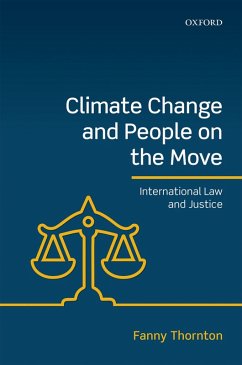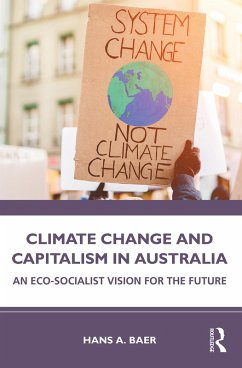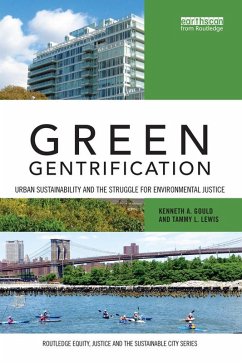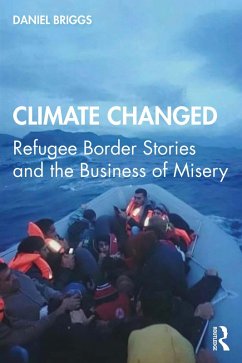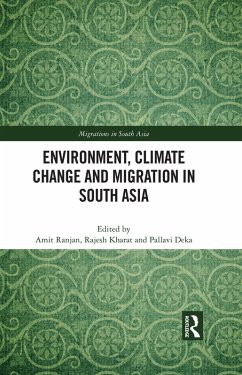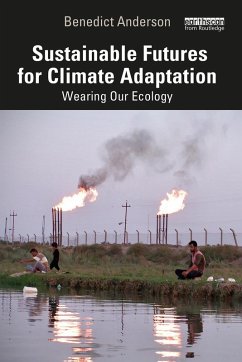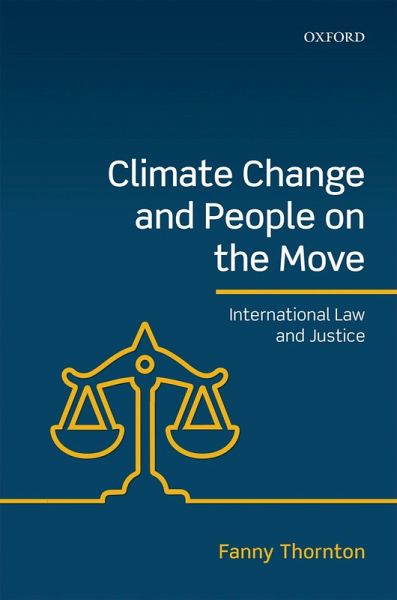
Climate Change and People on the Move (eBook, ePUB)
International Law and Justice
Versandkostenfrei!
Sofort per Download lieferbar
43,95 €
inkl. MwSt.
Weitere Ausgaben:

PAYBACK Punkte
22 °P sammeln!
This book applies a justice framework to analysis of the actual and potential role of international law with respect to people on the move in the context of anthropogenic climate change. That people are affected by the impacts of climate change is no longer doubted, including with implications for people movement (migration, displacement, relocation, etc.). Climate Change and People on the Move tackles unique questions concerning international responsibility for people movement arising from the inequities inherent to climate change. Corrective and distributive justice provide the analytical b...
This book applies a justice framework to analysis of the actual and potential role of international law with respect to people on the move in the context of anthropogenic climate change. That people are affected by the impacts of climate change is no longer doubted, including with implications for people movement (migration, displacement, relocation, etc.). Climate Change and People on the Move tackles unique questions concerning international responsibility for people movement arising from the inequities inherent to climate change. Corrective and distributive justice provide the analytical backbone, and are explored in a substantial theoretical chapter and then applied to subsequent contextual analysis. Corrective justice supports analysis as to whether people movement in the climate change context could be conceived or framed as harm, loss, or damage which is compensable under international law, either through fault-centred regimes or no-fault regimes (i.e. insurance). Distributive justice supports analysis as to whether such movement could be conceived or framed as a disproportionate burden, either for those faced with movement or those faced with sheltering people on the move, from which duties of re-distribution may stem. This book contributes to the growing scholarship and analysis concerning international law or governance and people movement in response to the impacts of climate change by investigating the bounds of the law where the phenomenon is viewed as one of (in)justice.
Dieser Download kann aus rechtlichen Gründen nur mit Rechnungsadresse in A, B, BG, CY, CZ, D, DK, EW, E, FIN, F, GR, HR, H, IRL, I, LT, L, LR, M, NL, PL, P, R, S, SLO, SK ausgeliefert werden.




